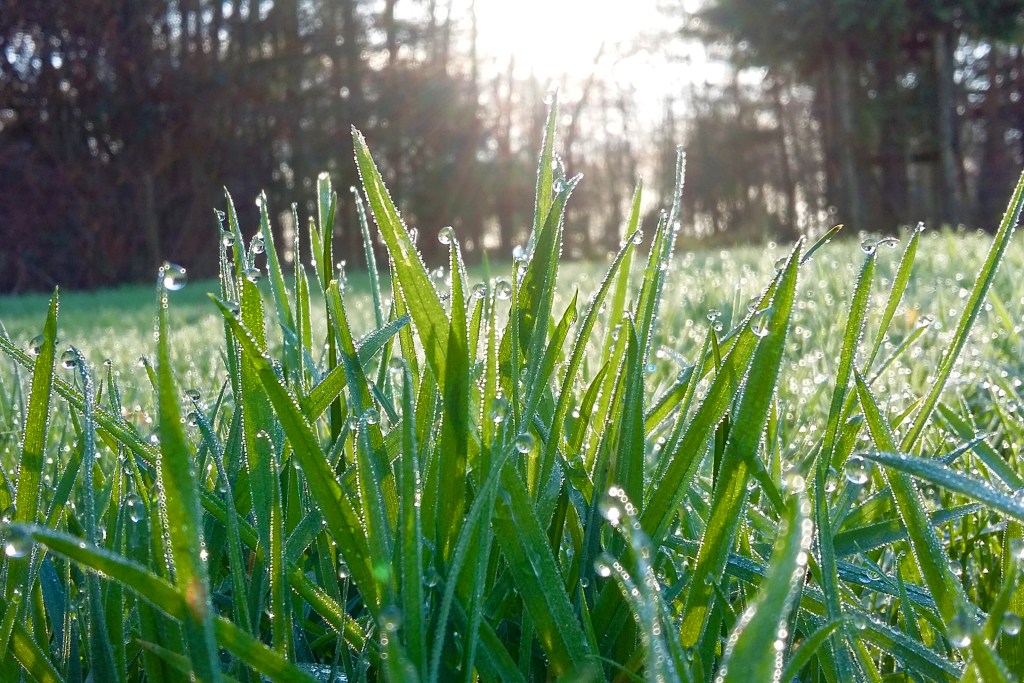How to prepare your yard for spring so you can enjoy it more and work on it less.

- Temps might still be a long way from shorts and T-shirts, but if your soil is warming up, it’s time to tackle your spring lawn care tasks. Especially if you want a gorgeous yard with the least amount of hassle.
#1 Seed Your Lawn
Before soil temps reach 65 degrees, spread grass seed over any bare or thin spots. The sooner the grass roots, the faster it can box out weeds. Or better yet, put down sod — it fights crabgrass and weeds better.
Related: Preparing Your Lawn for Spring: 5 Simple Steps
#2 Clean Out Debris

- Your yard is waking up from a monthslong slumber, and it’s lookin’ a little groggy, with branches, leftover leaves, and clumps of yard debris scattered about. Clean that unsightly detritus from your lawn and gardens after the overnight air temps consistently rise above freezing. (Before that, it actually helps protect your grass, like a toasty blanket.)
#3 Apply Fertilizer With Pre-Emergent Herbicide

- It sounds like an old gardeners’ tale, but even master gardeners follow it: If the bright yellow forsythia bushes are beginning to bloom, it’s time to apply a slow-release fertilizer with pre-emergent herbicide to fight crabgrass. Apply before the grass germinates — when the soil warms to about 55 degrees, which is when forsythia hits peak bloom.
#4 Plant Bare-Root Plants

- Once the soil in your garden is thawed and dry enough to crumble, rather than clump, in your hand, you can get your green thumb back into action outdoors. Cool-season growers like pansies, snapdragons, and bare-root trees and shrubs all get a boost from the cool, wet conditions.
#5 Wash Away Salt

- Most plants don’t grow well if they’re feeling salty (unless they’re saline-tolerant, like daylilies). So once roadside soil has thawed, give your exposed plants a good watering to dilute any salt that sprayed up from slushy winter traffic.
#6 Prune and Fertilize

- As long as your soil crumbles instead of clumping (revealing it’s sufficiently dry), it’s time to prune fruit trees, shade trees, and summer-blooming shrubs, and remove old growth from perennials that you didn’t prune in the fall. You’ll also want to fertilize trees and shrubs before they begin their spring growth.
#7 Preorder Perennials

- Even if you can’t plant them just yet, take advantage of the 10%-to-20%-off deals offered by many nurseries in early spring. Bonus: Being an early bird means you’ll also get the best selection.
#8 Get Your Mower Ready

- Once grass reaches 2.5 to 3.5 inches tall, it’s time for your mower’s annual maiden voyage. So prep now for a season of success, rather than stalling, wheezing, and cursing. Get an oil change, new spark plugs, and a clean air filter, and sharpen the blades to ensure a clean first cut.
“Visit HouseLogic.com for more articles like this. Reprinted from HouseLogic.com with permission of the NATIONAL ASSOCIATION OF REALTORS®.”
